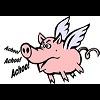Dyno Tuning Lessons At Unigroup Engineering
Announcements
-
Similar Content
-
Latest Posts
-
With the system, once you drive it for a bit, and before you turn the car off, does the car fix its date and time? When you say the date is wrong, what date does the vehicle think it is, and does it always show the same date? My thoughts from a process driven view is; The system may be defaulting to a standard start date/time. The main reason you'd typically see this occuring, is the system is losing its constant/backup power supply. If its always defaulting to the same date/time at start up, and especially if it fixes itself while driving, I'd say either the non volatile memory has an issue, or the power supply to the volatile memory that stores this information. The other thing I'd check is if there is anywhere in the system you can adjust the date and time from. If the date/time is still moving forward since it wished you happy new year, then it is 100% possible the system has just had a bit of data corruption occur, and you likely need to find a way to reset the date/time in the vehicle.
-
Scissor Jacks are an accident waiting to happen, the only time they should be used are in an roadside flat, even then a tyre and rim should be placed underneath
-
You know how your car rolled through a fence in your last jacking escapade? Scissor jacks increase the likely hood of that sort of thing happening immensely!
-
http://calfinn.com.au/product/1500kg-standard-trolley-jack-cj-2t-c/1500kg-standard-trolley-jack-cj-2t-c I have this and fits under a S3 33 GTR with no issues. Purchased in 2009 and not one issue. It was $950 back then. Not cheap but something so important isn’t worth cheaping out on.
-
Just trying to get my head around this. At 5psi of boost, you turn on your wmi pump, and then you're using a 3000cc injector, to allow flow upto the actual engine, where you have your 6x200cc injectors and a 500cc injector. If the above is correct, what advantage are you obtaining by having the 3000cc injector blocking flow, is this just incase a line breaks between that injector and the motor you can stop flow immediately? Or are the 6x200cc and 500cc less injectors and just spray nozzle?
-




Recommended Posts